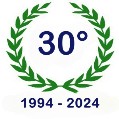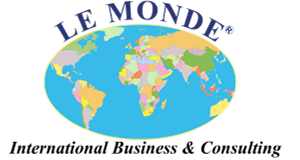Cashless money transactions – Mexico's new payment method
Digital collection (CoDi) is the latest electronic payment method developed by the Mexican Central Bank, designed to reduce the use of cash and promote competition, while incorporating larger sections of the population into the formal financial sector. It seems that Mexico is moving forward in financial technologies, such as CoDi, and using these developments to promote larger inclusion, competition and transparency for every sector in the country.
Digital collection (CoDi) is the latest electronic payment method developed by the Mexican Central Bank, designed to reduce the use of cash and promote competition, while incorporating larger sections of the population into the formal financial sector.
CoDi is a system that will apply QR codes and near-field communication (NFC) technologies to operate immediate cashless money transactions between buyers and sellers for the purchase of low-cost goods and services, using the existing Interbank Electronic Payment System (SPEI).
CoDi's design and operation
In order to partake in CoDi, buyers will need an account with a financial entity – which is a SPEI participant – and a smartphone connected to the user's bank's application. On the other hand, sellers will require either physical QR codes next to their products or digital ones and a smartphone to send those codes.
CoDi's operation is designed to be initiated by sellers that will generate and send buyers a charge for goods or services through electronic messages. Then, buyers will receive these messages on their mobile devices – through their own bank's applications – and will identify, verify and, if applicable, accept the charges. Once accepted, the buyer's bank will immediately validate the transfer and liquidate the amounts for the transaction.
Currently, CoDi mainly targets the following three types of transaction:
retail and counter sales, on which sellers will generate on-site payment electronic messages – depicted through static QR codes, dynamic QR codes or NFCs – that the buyer will scan and receive through their mobile device;
e-commerce, on which sellers will send remote online payment messages to a buyer's mobile device; and
recurring payments, on which sellers will send recurrent remote online payment messages to a buyer's mobile device.
Unlike most electronic money transactions, transfers made through CoDi:
will be free of banking commissions;
can be done at any time of the day and any day of the year; and
will be reflected almost immediately.
The downside is that this payment method will process transactions only up to a maximum of Ps8,000 (approximately US$400).
CoDi's financial market forecast
Most small businesses do not integrate alternative payment methods due to the commission fees that financial institutions charge for issuing credit cards and processing payment transactions. Thus, an important sector of the population still uses cash for most of their daily purchases.
It is expected that – without the cost of these commissions – small and local businesses will actively participate in more cashless transactions, which will, therefore, encourage competition and lead to a broader financial inclusion. It is also hoped that by removing cash from day-to-day transactions, money laundering and tax evasion will decrease.
Currently, CoDi is in its testing and pilot stage – with micro pilots at the internal level of financial institutions participating in the project which identify operational issues and resolve them. It is estimated that the second stage will start between the end of July and the beginning of August 2019.
For the second stage, CoDi will have a partial launch in three Mexican cities – with a total population of 430,000 people participating in real transactions. The goal of this stage is to test how the platform performs in a real ecosystem. If the second stage proves to be successful, a nation-wide launch will tentatively occur by the end of September 2019.
Notwithstanding its launching issues, since CoDi relies entirely on telecoms connectivity to process payments efficiently, it will also have to face the country's poor connectivity. Thus, if the government really seeks optimal inclusion of those that have less access to financial institutions, it must promote greater connectivity in rural areas – where connectivity is currently scarce.
In addition to connectivity issues, the system faces many other challenges with users' culture being one of its main barriers. Thus, CoDi must first generate and nurture trust among the Mexican population before it can be successful.
Comment
Overall, it seems that Mexico is moving forward in financial technologies, and using these developments to promote larger inclusion, competition and transparency for every sector in the country.




